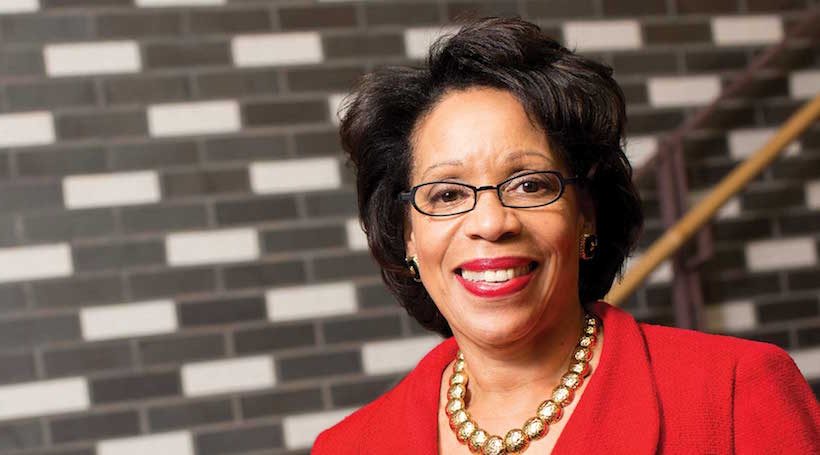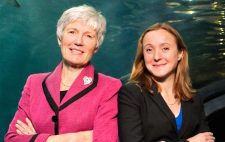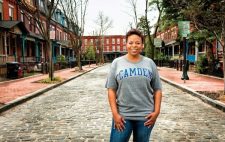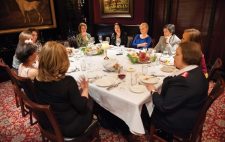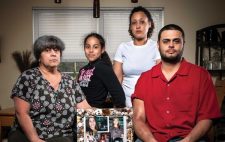When JoAnne Epps stepped onto the campus of Yale Law School in 1973 as a first-year student, she had never met an attorney – “not a man, not a woman and certainly not an African-American woman lawyer,” she says.
“My mother was a secretary, and I grew up in the era of ‘Perry Mason,’ so when I was younger my goal was to become a legal secretary,” says Epps. “I had never even thought of going to law school until one of my undergraduate professors suggested it to me. I didn’t have any particular idea of what lawyers did but I liked being in college, so I figured I’d make it up as I went along.”
Epps, who now lives in Shamong with her husband, says that while her grades proved she had the brains to cut it at one of the country’s leading law schools, “my lack of sophistication and experience was evident. I was surrounded by the sons and daughters of wealthy lawyers and judges. I just felt like an outsider.”
This feeling was further compounded by the fact that Epps was one of only 40 women and 10 African Americans in her class of 150. “I had a sense of discomfort, so I spent a lot of time in the library with my nose in a book,” she says. “I often had to remind myself that every step I took toward my education, I was going farther than anyone else in my family ever had. I also tried to focus on the opportunities ahead of me instead of the challenges.”
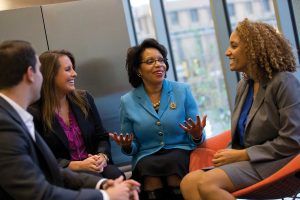
Shamong’s JoAnne Epps has been the Dean of Temple’s Beasley School of Law since 2008
One such opportunity presented itself during Epps’ third year of law school. “I was volunteering at a legal clinic in Los Angeles providing legal advocacy for prisoners. I was supposed to be serving as a public defender, but it turned out that all the slots were full. I was really disappointed,” she says. “I had never imagined myself working as a prosecutor, but I had to make the best of it.”
Epps says her initial disappointment quickly turned to enthusiasm while working on her first case, which involved a young African-American man who was being charged with robbery based on very minimal – and questionable – evidence.
“It changed everything I had learned and how I viewed the law. I saw cultural issues coming into play, and I thought, ‘so this is how it works,’” says Epps. “Immediately, I had a spark and a feeling that I could change policies and procedures on that end of the law.”
Her stint at the law clinic led to a job as deputy city attorney in Los Angeles upon graduation from Yale. “It was an entirely different path than I had envisioned for myself, but it worked out exactly how it was supposed to because I was able to find my passion and build a career in legal advocacy,” says Epps.
This passion soon led Epps back to Philadelphia, where she accepted a position as an assistant U.S. attorney, followed by a teaching position at Temple’s Beasley School of Law, where she committed herself to advocating for hands-on legal education.
“I remember sitting in law school and being surrounded by people who didn’t see themselves ever practicing law. I wanted to educate people who wanted to actually become lawyers – to teach important skills and values in a loud, vibrant atmosphere where students are doing things in the community while learning,” says Epps. “Law school shouldn’t be staid.”
Epps, who quickly rose through the ranks at Temple and was named dean of Beasley School of Law in 2008, extended that same enthusiasm to giving women and minority law students access to a quality education and work experience. “I spent much of my career not seeing ahead of me someone who was at all like me, and I’ve had to make my way without that. I want to be a resource for young people entering the profession that I never had,” she says.
An advocate for women, Epps has been heavily involved with organizations such as the Women’s Law Caucus, the Pennsylvania Gender Task Force and the Women’s Power Summit on Law and Leadership. “Men often assume they will run the world. Too often, it doesn’t even occur to women that they can run the world. I want to help change that notion,” says Epps.
This approach and commitment to equality have earned her dozens of honors, including the Barristers’ Association of Philadelphia Women of Distinction Award, NAWBO’s Women Making History Award and Philadelphia Business Journal’s Minority Business Leader Award. Most recently, the Philadelphia Bar Association presented Epps with the 2014 Justice Sonia Sotomayor Diversity Award.
Despite the accolades, Epps says there is still much work to be done when it comes to equality in the legal world. “The real challenge, and one the profession needs to take on, is to recognize difference itself as a valuable contribution. For too long we’ve seen difference as something to be tolerated, accommodated and minimized; I think instead it should be celebrated, encouraged, and embraced,” she says. “That’s really what the spirit of equality is all about.”
In this vein, Epps led the creation of Temple’s Stephen and Sandra Sheller Center for Social Justice last year. “We’re giving students the opportunity to serve the community where there is a need, not where there’s money to be made,” she says. “Through the center, they’re working to create solutions to problems like lack of access to healthcare, housing and education. The work embodies the type of real-world experience and education that’s important for a legal institution to offer. I believe laws work best when it works for everyone.”
Between teaching and getting the center up and running, Epps has little time for anything else – but she wouldn’t have it any other way. “I’m devoted, maybe a little too much, to work. I’ve never had much of a life outside my job,” she says. “My husband actually works in Temple’s office of community relations, so much of our lives is spent talking about our work and the community the university serves. We both work all the time, but it’s our passion.”


